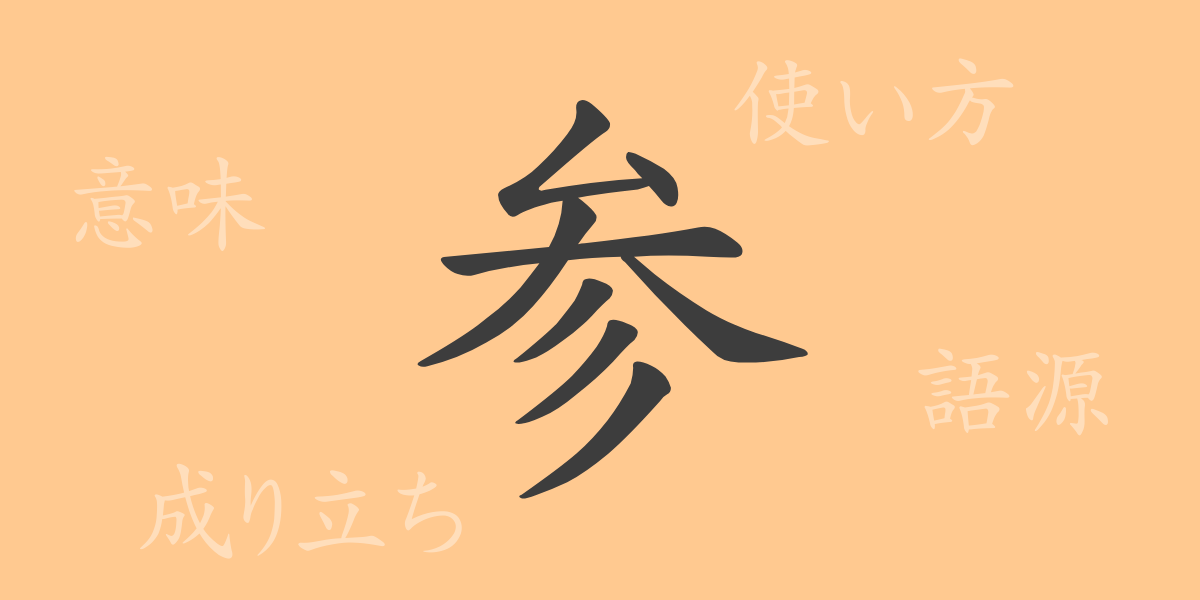In Japanese culture, the richness of the written language is deeply rooted, with kanji known for their complexity and beauty. One such kanji is “参(さん)”. This article explores the allure of the kanji “参(さん)”, covering its origin, meaning, usage, readings, and stroke count, as well as idioms and proverbs that include “参(さん)”. Join us in discovering the world of “参(さん)” as a step towards a deeper understanding of Japanese.
Origin of 参(さん)
The kanji “参(さん)” has its origins in ancient China. Originally, it meant “three mouths” and evolved to mean “participate” or “to visit”, signifying gathering or assembling. It also conveys the meaning of “mixing” or “mingling” as seen in expressions like “さんざん”. Thus, “参(さん)” is used in various expressions to denote the coming together of multiple elements.
Meaning and Usage of 参(さん)
The kanji “参(さん)” signifies “participate”, “to visit”, “reference”, and similar concepts related to gathering, involvement, or being influenced. It is used in terms like “参列(さんれつ)” (attending a formal event) and “参じる(さんじる)” (an archaic term meaning to go into battle). “参考(さんこう)” means to refer to information or opinions, commonly used in academic and research contexts. Therefore, “参(さん)” is a kanji closely tied to various aspects of daily life.
Readings, Stroke Count, and Radical of 参(さん)
The kanji “参(さん)” has multiple readings and a distinctive shape.
- Readings: The on’yomi (音読み) readings are “サン” and “シン”, and the kun’yomi (訓読み) readings are “まい・る”, “まい・らす”, and “まじわる”.
- Stroke count: “参(さん)” has a total of 8 strokes.
- Radical: The radical is “厶(む)”, with the shape also including “彡” which can aid in memorization.
Idioms, Phrases, and Proverbs Using 参(さん) and Their Meanings
There are numerous idioms, phrases, and proverbs in Japanese that include “参(さん)”. Here are a few examples:
- 参加(さんか): To participate in something.
- 参考(さんこう): To refer to or consider something.
- 参上(さんじょう): To visit a superior or attend an event.
- 参詣(さんけい): To visit a shrine or temple.
- 参戦(さんせん): To join a battle.
- 参謀(さんぼう): To plan military or political strategies.
- 参考になる(さんこうになる): To gain useful information or opinions.
- 参る(まいる): To visit, to be defeated, to be exhausted.
These expressions are commonly used in daily conversations and business settings, illustrating the broad meanings carried by the kanji “参(さん)”.
Conclusion on 参(さん)
The kanji “参(さん)” enriches Japanese expression with its diverse meanings. It is indispensable in communication, denoting gathering, participation, reference, and more. Understanding the correct usage of “参(さん)” is crucial in writing. Through this exploration, deepen your comprehension of the kanji “参(さん)” and aim for richer Japanese expressions.

























